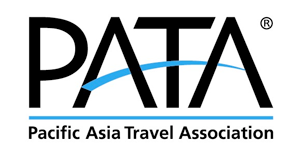The National Tourism Policy 2020-2030, recently launched by Malaysia’s prime minister, Muhyiddin Yassin, will see the creation of special tourism investment zones to attract more local and international investors as well as an intensified focus on making Malaysia a top-of-mind ecotourism destination, to regenerate the industry ravaged by the pandemic.
In his speech, Muhyiddin said he was confident that the National Tourism Policy would be able to ensure the survival of the country’s tourism industry.
The policy would be implemented through six key strategic thrusts, namely, governance transformation, creation of investment zones for inclusive tourism projects, intensifying the digitisation of tourism, enriching the experience of tourists, strengthening commitment to sustainable tourism, and increasing human capital capacity in all tourism sub-sectors.
In 2019, Malaysia’s tourism industry contributed 15.9 percent to the country’s GDP, valued at RM240.2 billion (US$59.5 billion).
The labor force of the tourism sector recorded 3.6 million people who contributed 23.6 percent to total employment. This means that for every four jobs in Malaysia, one of them is related to the tourism industry.
Commenting on the 10-year tourism policy, Malaysian Association of Hotels CEO, Yap Lip Seng, said it needs to be accepted and empowered across various ministries and agencies, and not just be another project paper for the Ministry of Tourism, Arts & Culture (MOTAC) alone.
“MOTAC must be given sufficient autonomy to ensure the objectives under the policy are achieved within the set time frame,” he added.
He described the tourism industry as a complicated sector that involves various stakeholders, both public and private, and very often overlapping jurisdiction with other government agencies with conflicting priorities.
He said: “The National Tourism Policy must be upheld across and be prioritized for it to be relevant and effective. A clear example would be the need to drive international arrivals versus immigration controls. The government must realize that relaxation of immigration restrictions (visa requirements) plays a major role in driving tourist arrivals. While immigration concerns are valid too, it should be a matter of enforcement and not upfront restrictions.”
The Malaysian Association of Tour and Travel Agents president, KL Tan, welcomed the plan but suggested that, in light of the current uncertainty and global economic landscape, that the roadmap be segmented into various phases according to the dynamic business environment.
He said: “The immediate first three years would be resetting tourism as the whole tourism ecosystem is on the brink of collapse. Reimagining tourism destination strategies, digitalisation, infrastructure development, upskilling, rebranding, and repackaging should be emphasised, consistent with the new traveling trends and patterns. The roadmap needs to provide an opportunity for stakeholders to realign and reinvent towards better and sustainable tourism for the future.”
Critical structural changes in both the government and private sectors will facilitate tourism recovery and lift Malaysia’s appeal as a tourist destination, he noted.
The baseline initiative reflecting the sector needs should be spearheaded by the MOTAC, he added, while other government agencies should strive to align their objectives with the ministries.
He said: “One of the key areas that have yet to be effectively addressed is governance transformation – local legitimate tourism stakeholders have been disadvantaged for years and we hope that this thrust for transformation will finally put us on equal competitive footing globally.
“With the thrust towards digitalisation, the government must prioritise the role of local stakeholders by looking seriously into developing locally established assets and balance engagement with foreign platforms and entities.”
- TAGS / KEYWORDS:


















.png)














